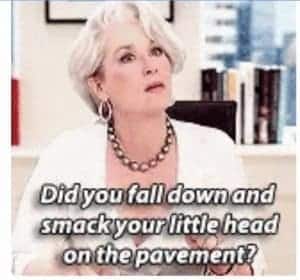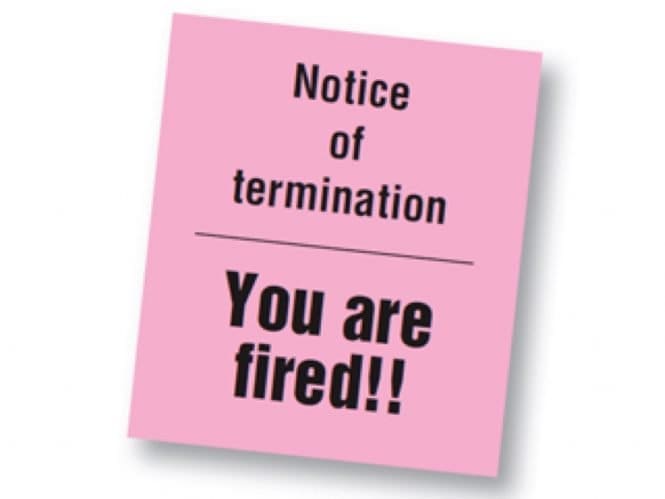On a day when many are reflecting on issues of organizational and collective integrity, there is good news from within the Episcopal Church. Specifically, incoming Presiding Bishop Sean Rowe has removed corrupt Bishop Todd Ousley from all involvement in the Title IV process for bishops as a precursor to Ousley’s departure later this year.
Anglican Watch supports Rowe’s decision to remove Ousley, and believes it is long overdue.
Rowe announced the change in a letter, included in this post, to the Disciplinary Board for Bishops, with copies sent to the presiding bishop delegates and intake officers who served in lieu of former presiding bishop Michael Curry. Curry cited his health, his role as a respondent in several cases, and his pastoral relationships with respondents to avoid participating in the disciplinary process for bishops.
Anglican Watch believes the news portends a positive change in the Episcopal Church. Both Ousley and his predecessor, Bishop Clay Matthews, routinely:
- Sandbagged complaints against bishops.
- Refused to provide a pastoral response to complainants.
- Ignored requirements to provide notice of the right of complainants whose complaints were dismissed at intake to appeal.
- Acted with indifference to the needs of complainants.
- Refused to act when bishops diocesan ignored the provisions of Title IV.
Additionally, both Ousley and Matthews treated anything that came out of a diocese with the words “Title IV” in the header as a done deal, even when the bishop diocesan dismissed the matter out of hand or used a facially pretextual basis to dismiss. Thus, many Episcopal bishops viewed Title IV as an unwelcome intrusion and, in the words of Bishop Shannon Johnston, “[didn’t] want to get involved.”
We were not aware that compliance with church canons was optional for bishops.
Additionally, many judicatories in the denomination do not understand due process or the notion that they must adhere to the specific provisions of Title IV to comply with the canons.
The result of this mess was that intake officers on the diocesan level and their bishops often mirrored behavior within the Office of Pastoral Development, including:
- Conducting preliminary “investigations” contrary to the express language of Title IV.
- Ignoring misconduct that did not involve sex or embezzlement (even those situations often resulted in hit-or-miss outcomes.)
- Acting in ways that are unethical or illegal, including ignoring mandatory reporting laws or, in the case of Bishop Glenda Curry and the Diocese of Alabama and the allegations of child rape by Episcopal priest Richard Losch, engaging in obstruction of justice by providing criminal investigators knowingly false information, including that Losch was not serving a church (in reality, he served two churches), and that he did not have access to children (besides officiating at two churches, he has internet access and lived in close proximity to a school).
- Repeatedly ignored criminal conduct by clergy, including Episcopal priest Bob Malm’s repeated felony conduct, for which he has never been criminally investigated or prosecuted, thanks to the captive Episcopal insurance carrier the Church Pension Group and its deep pockets. This, despite the fact that national church abuse advocacy group SNAP has publicly called for the church to address Malm’s criminal conduct. (Full disclosure: Malm’s perjury, a felony in the relevant jurisdictions, was directed at Anglican Watch editor Eric Bonetti and his late mother. The latter was in hospice care at the time.)
Of course, in any organization, lower levels within the organization take their cues from senior leadership, with the result that trust in the Episcopal Church’s clergy discipline system is all but nonexistent.
Indeed, as the Whayne Hougland situation illustrates, the Title IV system far too often incentivizes clergy misconduct.
In Hougland’s case, he received a remarkably generous golden parachute as a reward for his adultery, with funds coming from the dioceses injured by his misconduct.
At the same time, the Michigan dioceses got no care at all from the national church. And Ousley lined up a plum interim position for his Episco-bro, Houghland, at a wealthy Chicago parish, just to make sure Houghland lacked for nothing following his adultery — even as Ousley narcissistically babbled on like a jackass about how his financial rape of the Michigan dioceses reflected the highest ideals of the Title IV process.

All we can say is if that’s Ousley’s idea of effective clergy discipline, it’s time for all hands to abandon the ship. We’ve taken a direct hit and we’re going down, and fast.
Does this mean the Episcopal Church and the victims of its corrupt clergy disciplinary system are out of the woods? Hardly.
Indeed, several recent decisions by the Disciplinary Board of Bishops reflect a profound lack of proficiency in Title IV requirements and a lack of understanding of the dynamics of abuse.
- The Board still does not fully understand that just because a piece of paper comes from a bishop diocesan with the words “Title IV” on it does not mean that the bishop fulfilled her obligations under Title IV. Indeed, some of the most egregious violations of trust we have seen involve simply sending out a notice of dismissal citing the “weighty and material” requirement of Title IV, even though the alleged conduct involved felony criminal conduct. This happened repeatedly under Bishops Shannon Johnston, Susan Goff, Chilton Knudsen, and Alan Gates.
- As we have stated before, Title IV only applies to clergy, including its provisions for confidentiality. To tell complainants, especially those who have left the denomination over its failure to address abuse, that they must keep their experiences confidential is nothing more than gaslighting and another layer of abuse.
Moreover, several ugly cases, including Bishop George Sumner’s retaliation against an Episcopal priest for opposing sexual harassment, have sat for years untouched in Ousley’s inbox. Indeed, when Barb Kempf stepped in as intake officer, the complaints against Sumner had mysteriously vanished.
How convenient.
Fortunately, those complaints have been refiled, and we hope that the cases will not linger for years to come but will be addressed promptly and with an eye to helping those hurt by Sumner’s misconduct.
Meanwhile, the comparatively minor issue of Alan Gates’ tomfoolery at the Easter Vigil went straight to conciliation (which is not in any to minimize the harmful effects of Gates’ misogyny.) Further, the Title IV complaints against Bishop Santosh Marray, which involved a pattern and practice of abuse, bullying, and corruption against LGBTQ+ clergy in his diocese (including violations of confidentiality), went to conciliation, which in Marray’s case is a total waste of time.
If nothing else, Marray needs to be told, in writing, that if there is even a hint of bullying priests in his diocese, Rowe will immediately suspend him from office and begin proceedings to defrock him, simple as that. The behavior in question is unacceptable, damaging to the church, and violates every norm of good governance. Indeed, in a for-profit organization, Marray would have been out the door on the spot; there is no reason for the Episcopal Church to adopt a lesser standard.
Relatedly, Anglican Watch hopes that the complaints previously sent to Todd Ousley and Michael Curry in the Richard Losch case, which implicate Alan Gates and Glenda Curry, will soon get Rowe’s attention. Indeed, Gates couldn’t even be bothered to respond, while Curry ignored multiple complaints from the victim. This, even after Losch was criminally indicted.
The bottom line is we’re cautiously optimistic. However, the systemic breakdowns in the Title IV process are a huge problem for the Episcopal Church, and people in the pews must not overlook or minimize the damage that these issues are causing to the denomination. This damage includes undercutting the church’s reputation and causing lasting, perhaps irreparable, harm to relationships both within and outside the church.
And for the record, Episcopalians do themselves no favors when they attempt to minimize these issues by denying the veracity of victims or trying to blame victims on the basis that they are “angry” and “disgruntled.” Victims of abuse have every right to be angry at the church and its corrupt, narcissistic handling of clergy discipline.


Another important point about Ousley: He ignored the Losch situation repeatedly, despite pleas for help from the victim. Child rape is a felony, with no statute of limitations.
So why did he not think this warranted action? As in notifying the police, sending the information to an intake officer, and more?
IMO, Ousley should be defrocked. He is crooked as a corkscrew.
This is good news. perhaps the new PB will take real steps to address abuse in TEC.
Bishop Curry’s, “ Loving, liberating, life-giving God,” did not seem to extend to Title IV complainants – even if they related to a person of color who was elected to lead the house of deputies
MC was silent after Julia Ayala Harris was sexually assaulted on the floor of the diocesan convention.
MC was silent after complaints lodged were lodhed by Bishop Singh’s family.
Is this a church, or is this a social club?
So, it seems that TEC is keeping quiet on the Welby matter and the C of E’s cover-up for nearly forty years of John Smyth’s child abuse allegations. There are numerous bishops, clergy and laity who looked the other way when Smyth’s behavior was brought to the C of E’s attention over the decades.
Apparently, TEC is using their playbook when it comes to alleged criminal acts perpetrated by clergy, namely, deny and ignore anything is wrong. This is how TEC has dealt with Title IV allegations.
Welby should resign along with all who had a hand in this conspiracy. The bishops, clergy and laity who participated in the alleged criminal sexual misconducts in TEC need to resign from their positions, too. They are the ones in Michigan, Illinois, Ohio, Georgia, Texas, Massachusetts, Virginia, et al. Their behavior borders on an institutional conspiracy of the worse kind. It is my fondest hope that all of the above will be brought to justice. I have heard that a branch of the federal government that investigates such matters is aware of this behavior in TEC. What I am waiting for is to see that agency start acting on that awareness.
In the meantime, parishes and diocese continue to implode, because of their cover-ups. Maybe the Presiding Bishop can right these wrongs and bring some semblance of justice out of this sordid mess. Maybe he can stop this country club mentality that still controls TEC and replace it with the Gospel. Maybe he can bring healing and comfort to the victims caused by these abusers and those who protected them. By what he has said, I am cautiously optimistic. Now let’s see how he acts.